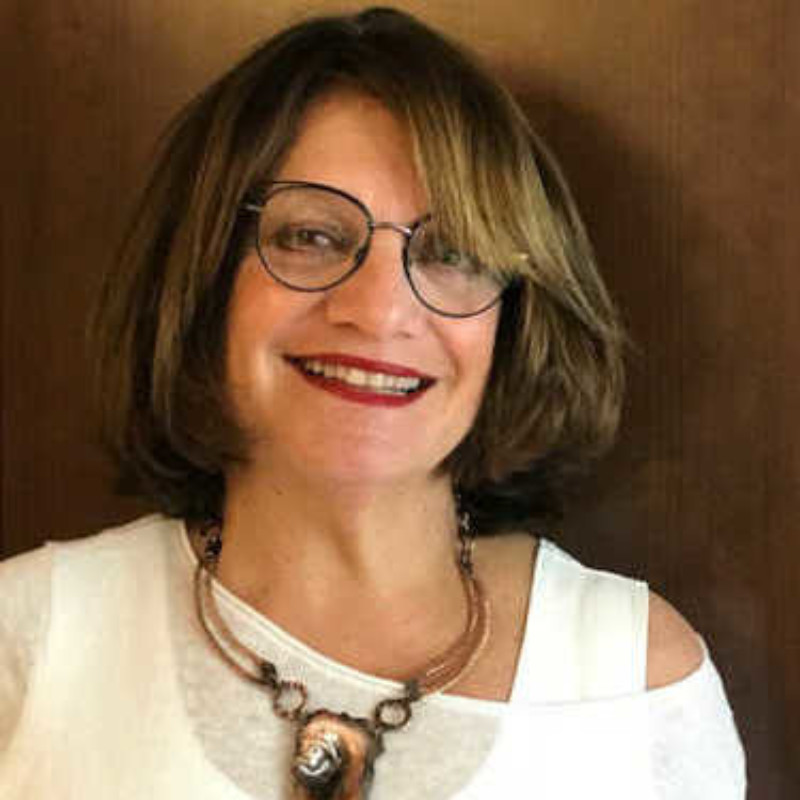
I ripped open the mustard-colored, legal-size envelope. I could tell by the handwriting, it was from my father. The only other time he had sent me a letter was when I was a child at sleep-away camp. A note, paper-clipped to a handful of legal documents, read, “put these in a safe place.” There were: Health Care Directives, Living Wills, Durable Powers of Attorney, and Trust Agreements—reminders of my parents’ mortality. One by one, I skimmed the legalese. When I saw my name, I paused. My parents had appointed me their Power of Attorney, to make their life and death decisions. It made sense, I am the eldest child and an attorney. Even so, I felt anointed. Now, a decade later, the power is paralyzing.
My father passed away from a heart attack three years ago. He and my mother had been married for 63 years. My mother crumbled. She spent most of the following year in bed and her muscles atrophied. She developed Parkinson’s disease and dementia. Now, at age 85, she wears a diaper underneath her black pull-up slacks and she’s confined to a wheelchair. She cannot wipe her runny nose, plop a piece of chocolate into her mouth, nor wrap a shawl around her cold shoulders. She lives in a senior living community in South Florida, near my brother and sister. A team of caretakers provides her with round-the-clock care.
Late in the summer, my sister came to visit me in Baltimore. We were at dinner and had just ordered wine, when my cell phone rang.
“Mrs. Black?”
“Yes”
“This is your mother’s aide. Please don’t worry. But your mother’s been lethargic and has stopped eating—I erred on caution and called her doctor. He said to call an ambulance. We’re at the hospital now. I will keep you posted.”
Soon after, my mother’s doctor called me. He had conferred with the emergency room physician. They suspected that my mother had a bowel blockage and admitted her for testing and observation. If their suspicions were confirmed, she’d have surgery in the morning. Between tears and fears, my sister and I spent the rest of dinner searching for flights to Miami. There weren’t any flights that night, so we booked the first plane out the next morning.
When we arrived at the hospital, my mother was out of surgery and stable. But our relief was short-lived. Mom developed multiple infections and complications—her kidneys began to shut down. Each morning, I would drive from my hotel to the hospital, hoping that my mother’s kidneys had reversed their decline. Creatinine, a word I’d never heard of before her hospitalization, became a part of my daily vocabulary. It is an indicator of kidney function. My mother’s normal level was 0.5; it was now 3.6
A parade of “ologists” consulted on her case: urologists, cardiologists, nephrologists, neurologists, and others. None of them were optimistic. Eventually, her doctor took me aside and said, “We need to talk.” He ushered me down the hall and into a legal-pad colored room, just big enough to hold a two-seat sofa, an arm chair, and a wooden table. It smelled like antiseptics. I sat on the sofa, he sat across from me in the arm chair.
In a matter-of-fact voice he said, “Are you her power of attorney?”
“Yes.”
“Well, we can’t find a DNR, (do not resuscitate). You need to sign one. I’m sorry, but there is not much more we can do for your mother. Her kidneys are failing—it doesn’t look good.”
“There’s nothing you can do?”
“She’s 85 years old. She is not a candidate for dialysis. If she shuts down, it would be cruel to insert a feeding tube or keep her alive with artificial means.”
He handed me a yellow paper to sign, in large caps it read, “DO NOT RESUSCITATE.” I held it away from me, as if it were my dog’s newly filled poop bag.
“Okay, let me talk with my family. I’ll get back to you in the morning.”
“I understand. And, if it’s alright, I’ll have someone from hospice get in touch with you.”
I am not good at making irreversible decisions—I struggled with neutering my dog. I didn’t want to sign the DNR, nor agree to hospice. I did not want to play a role in my mother’s death.
I went back to her hospital room. I kissed her and said, “I love you. I’ll be back tomorrow.” Then, I drove to my hotel room to reread those documents from that mustard colored envelope that my father had sent years ago. They were now downloaded onto my iPhone. This time, I read them as if my mother’s life was at stake. The boilerplate language said:
“If at any time I am incapacitated, and I have an end-stage condition . . . and no reasonable medical probability of recovery . . . I direct that life prolonging procedures be withheld . . . ”
Initially, I thought I was off the hook—her directives were clear. It was my job to execute, not to decide. But then, in less time than it takes for my nail polish to dry, I thought back to all the papers my businessman father had asked my mother to sign over the years. She never read them. He said, “Sign.” She said, “Where?”
I also thought about my mother’s fear of dying: If she sneezed in the morning, she called her doctor by afternoon. She made an appointment for her flu shot, before the vaccine was released. She wouldn’t allow us to visit her if we had a cold. A headache was indicative of a brain tumor. Her favorite hand lotion was Purell.
Would she want to fight now?
In the past, I had tried to talk to my mother about her wishes. She never said, “Let me die, naturally.” I pushed her, trying to avoid this very situation, “Mom, if the only way to live is with a feeding tube down your nose or in your stomach, do you want that?”
“Okay, fine. Do whatever you want. I’m not talking about it anymore.”
Knowing that I had to get back to the doctor by morning, I stayed up most of that night talking with my family. Everyone agreed that Mom no longer had quality of life. Artificial interventions were more for us than for her. It was selfish to cause her more pain. If she died, who were we to play God and revive her? Fear of dying is not the same as choosing life.
The next morning, I went to the hospital with the signed, yellow DNR. But the decision was no longer in my hands. Mom’s creatinine levels had dropped—her kidneys were improving. The potent antibiotics prescribed for her infections may have harmed her kidneys. The nephrologist changed medicines and she responded. Mom continued to progress and by the end of the week, after a month of hospitalization, they sent her home.
My siblings and I met with the hospice people before her discharge. They educated us and made us question whether, given my mother’s age and condition, it was fair to put her through any more hospitalizations. They could help enhance her quality of life. If we changed our minds, we could withdraw their services.
That was five months ago. Mom’s kidneys have stabilized, though her Parkinson’s has progressed. While oftentimes she’s miserable, there are still sparkles of joy. She enjoys TV shows like America’s Got Talent and Dancing with the Stars. She smiles when I visit—especially when I bring sesame-covered bagels. She insists that her jewelry matches her outfits. And she loves to sing.
I’ve played and replayed a video that my sister texted me last week. It’s of a hospice volunteer, strumming her guitar while singing to my mother, “Oh what a beautiful morning, oh what a beautiful day.” Mom cocks her head to listen. Her eyes twinkle with recognition. She joins in, “I got a beautiful feeling, everything’s going my way.”
If I look at the video too closely, I can’t help but spot the emergency notebook lying on her kitchen counter. It holds that yellow DNR. My signature is at the bottom.
